As the war prolonged, the shortage of Bibles remained a problem. Consequently, Robert Aitken, publisher of The Pennsylvania Magazine, petitioned Congress on January 21, 1781, for permission to print the Bibles on his presses here in America rather than import them. He pointed out to Congress that his Bible would be “a neat edition of the Holy Scriptures for the use of schools.” 128 Congress approved his request and appointed a committee of James Duane, Thomas McKean, and John Witherspoon too verses the project. In October 1781, amidst the work on the Bible, the Americans won the Battle of Yorktown and the British troops laid down their arms. The British press reported the activities surrounding the surrender: It was on the 19th of October that Lord Cornwallis surrendered himself and his whole army.
Two days after the capitulation took place, Divine service was performed in all the different brigades and divisions of the American army in order to return thanks to the Almighty for this great event; and it was recommended by General Washington to all the troops that were not upon duty, in his general orders, that they would assist at Divine service “with a serious deportment and with that sensibility of heart which the recollection of the surprising and particular interposition of Providence in their favor claimed.” On October 24, 1781, Congress, too, set aside a time to honor God for this victory and: Resolved, That Congress will at two o’clock this day go in procession to the Dutch Lutheran Church and return thanks to Almighty God for crowning the allied arms of the United States and France with success by the surrender of the whole British Army under the command of the Earl Cornwallis. Despite the victory, work on the new Bible continued. As it neared its final stage of readiness in late summer 1782, James Duane, chairman of the Congressional committee, reported to Congress: He Mr. Aitken undertook this expensive work at a time when from the circumstances of neither the war an English edition of the Bible could not be imported, nor any opinion formed how long the obstruction might continue. David Barton - We are being sensitive to the needs of our guests. When we plan these services every single weekend we are serving the food, the truth which is the Word of God, yet we are serving it in a more creative and thoughtful way.
1 Comment
And for the support of this Declaration, with a firm reliance on the Protection of Divine Providence, we mutually pledge to each other our Lives, our Fortunes, and our sacred Honor.” After citing many additional historical examples, the Court then reviewed several legal precedents which further buttressed its declaration: We find that in Updegraph v.
The Commonwealth, 11 S. & R. 394, 400, it was decided that, “Christianity, general Christianity, is, and always has been, a part of the common law not Christianity with an established church but Christianity with liberty of conscience to all men.” And in The People v. Ruggles, 8 Johns. 290, 294, 295, Chancellor Kent, the great commentator on American law, speaking as Chief Justice of the Supreme Court of New York, said: “The people of this State, in common with the people of this country, profess the general doctrines of Christianity, as the rule of their faith and practice. We are a Christian people, and the morality of the country is deeply engrafted upon Christianity and not upon the doctrines or worships of those impostors other religions.” And in the famous case of Vidal v. Girard’s Executors, How. 127, 198, this Court observed: “It is also said, and truly, that the Christian religion is a part of the common law.” After several pages of similar discourse, the Court concluded: There is no dissonance in these declarations. There is a universal language pervading them all, having one meaning; they affirm and reaffirm that this is a religious nation. These are not individual sayings, declarations of private persons: they are organic legal, governmental utterances; they speak the voice of the entire people. These, and many other matters which might be noticed, add a volume of unofficial declarations to the mass of organic utterances that this is a Christian nation. As far as the Court was concerned, the issue was closed; it would never support any action which might have the effect of suppressing religion or of limiting religious expression. Since the Court cited Updegraph v. Commonwealth, People v. Ruggles, and Vidal v. Girard’s Executors in reaching its conclusion, it will be profitable to review these cases. However, before examining these three cases and seventeen others an observation should first be made about rulings issued by State Supreme Courts. David Barton - Once you establish a place, that place can become like the Garden of Gethsemane was for Jesus, a place of worship with a special aura surrounding it. Consequently, as Justice Joseph Story explained, through Article VI it was possible that on the federal level the Catholic and the Protestant, the Calvinist and the Armenian, the Jew and the Infidel, may sit down at the common table of the national councils without any inquisition into their faith or mode of worship. Did this therefore mean as many currently claim that the Founders were attempting to prevent an investigation into the religious beliefs of a candidate, or that such beliefs were immaterial to his election?
Definitely not see the Founders’ clear views on this issue in Chapter 18. The issue was not the investigation of the religious beliefs of candidates, but rather the jurisdiction for such investigations. The Founders believed that the investigation of the religious views of a candidate should not be conducted by the federal government, but rather by the voters in each State. What evidence supports this? The discussion of this topic during the ratification debates provides extensive evidence. For example, in the North Carolina ratifying convention, Governor Samuel Johnston explained: It is apprehended that Jews, Mahometans, pagans, &c., may be elected to high offices under the government of the United States. Those who are Mahometans, or any others who are not professors of the Christian religion, can never be elected to the office of President or other high office, but in one of two cases. First, if the people of America lay aside the Christian religion altogether, it may happen. Should this unfortunately take place, the people will choose such men as think as they do themselves. Another case is if any persons of such descriptions should, notwithstanding their religion, acquire the confidence and esteem of the people of America by their good conduct and practice of virtue, they may be chosen. Signer of the Constitution Richard Dobbs Spaight also declared: As to the subject of religion no power is given to the general federal government to interfere with it at all. No sect is preferred to another. Every man has a right to worship the Supreme Being in the manner he thinks proper. David Barton - The fourth suggestion. Put it into practice. Worship isn't worship unless there is change. Put into practice what you have learned, how you have experienced God. Live it out. In fact, in 1876 eight years after the Fourteenth Amendment had been ratified, and following two Supreme Court cases on that Amendment a noted commentator reported: The Rule adopted by the Supreme Court of the United States in interpreting the Fourteenth Amendment makes it inapplicable to the religious liberty or any other right of the citizen as determined by the state of which he is resident.
The Court in the cases of Paul vs. Virginia and of the New Orleans Slaughter-house (16 Wallace, p. 36), laid down the principle. There is nothing in the last three amendments to the Constitution that reaches the question of religion, and nothing anywhere else in this instrument that places the states under the slightest restraint with reference to this subject; and hence it is true, as remarked by Justice Story [one of the Supreme Court’s most noted legal scholars, appointed by President James Madison in his Commentaries on the Constitution (section 1879), that “the whole power over the subject of religion is left exclusively to the state governments, to be acted upon according to their sense of justice and the state constitutions.” When one understands the intent of these two Amendments, it is not surprising that no previous Court had ever coupled them as did the 1947 Everson Court. † In fact, in 1970, Justice William Douglas openly acknowledged that by coupling the Fourteenth Amendment and the Bill of Rights, the Court had not only usurped state authority over many areas but that it had also created an American revolution that involved the imposition of new and far reaching constitutional restraints on the states. Nationalization of many civil liberties has been the consequence of the Fourteenth Amendment, reversing the historic position that the foundations of those liberties rested largely in state law and so the revolution occasioned by the Fourteenth Amendment has progressed as Article after Article in the Bill of Rights has been incorporated in it [by the Court] and made applicable to the states. The Everson decision represented a disturbing and unprecedented judicial paradigm shift. David Barton - You can't compartmentalize worship. You can't say that you will worship God from 10:05am until 11:10am on Sunday and from 7:00pm to 8:00pm on Wednesday evenings. Worship must transcend every area of your life. In Balch Spring, Texas, senior citizens meeting at a community senior center were prohibited from praying over their meals. In Russellville, Kentucky, a library employee was barred from wearing her necklace because it had a small cross on it; and in Clymer, Pennsylvania, a school employee was suspended for wearing a necklace with a cross. Although states print hundreds of thousands of custom license plates plates ordered and purchased by individual citizens, Oregon refused to print “PRAY,” Virginia refused to print “GOD 4 US,” Vermont refused to print ROMANS5,” and Utah refused to print “THANK GOD,” claiming that such customized license plates violated the “separation of church and state.”
In cities in Texas, Indiana, Ohio, Georgia, and Nebraska, not only were citizens not permitted to hand out religious literature on public sidewalks or preach in public areas, but several were arrested for doing so. In Memphis, Tennessee, a library offered shelves for displaying community advertisements and announcements. When a local church placed a notification of its upcoming Christmas program and a small Nativity scene on the shelf, the library required the removal of Joseph, Mary, Jesus, and the Wise Men from the scene, leaving only the farm animals. In Eau Claire, Wisconsin, college students serving as residential assistants were prohibited from holding Bible studies in their own private dorm rooms, even though discussion groups on any other topic were permitted. In York, Pennsylvania, because a prosecuting attorney mentioned seven words from the Bible in the courtroom (a statement that lasted less than five seconds), a jury sentence was overturned for a man convicted of brutally clubbing to death a 71-year-old woman in order to steal her Social Security check. In the name of “separation of church and state,” courts and public officials have clearly imposed unreasonable restrictions on religious free speech across the general public sphere; and they have imposed even more egregious restrictions on students and education. For example: If students are given the latitude of creating artwork of their own choosing, it is unconstitutional for them to include a religious image in their artwork. JOKI v. BD. OF EDUC. OF THE SCHUYLERVILLE CENTRAL SCH. DIST., 1990; C. H. v. OLIVA, 2000; FLEMING v. JEFFERSON COUNTY SCH. DIST., 2002; PECK v. BALDWINSVILLE CENT.SCH. DIST., 2005 Student artwork containing religious symbols (such as a Bible or a cross) may be treated as gang symbols, profanity, and satanic signs. BANNON v. SCH. DIST. OF PALM BEACH COUNTY, 2004. David Barton - The wonder of worship. Apply it and you will never, ever be the same. How many of you have ever ridden a camel before? Will you please lift your hand? |
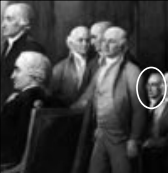
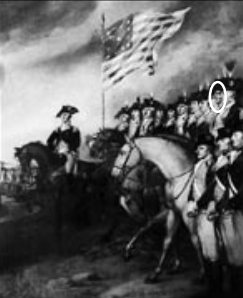
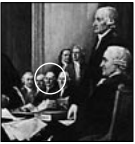
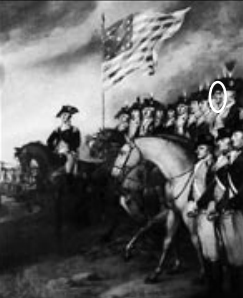
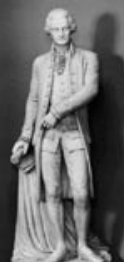
 RSS Feed
RSS Feed